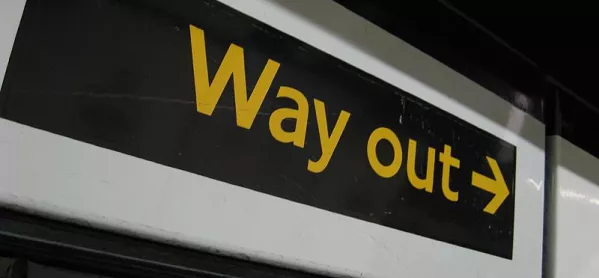I have asked myself the following question over the past couple of weeks: why is it so hard for some adults to say sorry?
At our school, I have started to look deeper into the conflict cycle and the escalation of issues with children that could have perhaps been prevented.
A situation I had with a pupil relatively recently comes to mind. Jacob was clearly in crisis and was exhibiting behaviour I needed to put an end to. As a matter of pride - because other children were around - I felt that I couldn’t let Jacob “win”. Rather than really focus on the needs of Jacob in that situation, I felt it was more important that Jacob did as I wanted him to.
As a result, I entered into an argument with a child.
Wrong approach
This does not make me proud. But our children can be incredibly challenging and this can happen to any of us. Jacob did walk away from the incident, it ended, yet he left sad and angry. I returned to my office. Had I “won”?
Within a few minutes of the incident occurring, two colleagues came to my office. Since the introduction of secondary trauma-informed supervision at our school, I have encouraged all staff to co-regulate when they see a staff member who may need “encouraging” to reflect on their practice. Both of these teachers said, “Do you think that was the best way for that to end?”
I knew in that moment that I had lost. And I knew I had to say sorry.
Better behaviour
I quickly returned to Jacob. He had returned to class (exactly what I had wanted him to do) and I waited outside until his lesson had finished. I asked for a moment with him and I apologised. He accepted the apology and apologised, too. I allowed other children - and other staff members - to hear me apologise.
I didn’t have any more problems with Jacob that day.
Co-regulation with colleagues is difficult. It is hard to encourage someone else to reflect on their practice and it is even harder to encourage someone to apologise if they do not see that they are wrong. I have read so many articles and books on the power of the word sorry, yet there are still so many in the profession that refuse to acknowledge this.
I have heard people say “but we are the adults so they must do as we tell them” and “they will never learn if they don’t know how to respond to authority”.
There is truth in that, but I do maintain that, as practitioners, we can all make mistakes, and just because we are the “adults” or the “authority” in the situation, it does not mean we are exempt from having to apologise when we are wrong.
Genuine apology
It is all the more frustrating when the adult does not even realise that they could have done better. I have seen the power of “sorry” so often in my current and previous school. I have some team members that are incredible at forming positive relationships with our children and getting the best out of them in lessons. These team members are teachers, learning-support assistants and leaders, but they all have these key components:
-
They will apologise if they know that is what the child needs. I have even seen them apologise when they didn’t need to, as it allowed the pupil to win in their mind, which could get them to a place of calm to further discuss the incident and then apologise for their own part in the situation.
-
They use the power of “sorry” to validate feelings. An example: “I’m sorry you feel that way, but I am here to try to help, so can you take a few minutes to calm down and I’ll come back to you?”
-
If they need to apologise, they mean it. They are not sarcastic. They do not say it because they have to. They know they have done something to upset or anger the pupil and they say sorry with sincerity.
-
They are not afraid to make mistakes. They work with passion, they are competent, yet they recognise we can make mistakes and are more comfortable in admitting when they have been in the wrong.
-
They know that saying sorry builds trust with children. All of the children in our school are experiencing trauma or attachment-related issues, and all of those children respond better to staff that exhibit the ability to say sorry when required.
-
They are masters of self-reflection and are the most confident to co-regulate with colleagues. They are always keen to improve on practice and are solution-focused.
Leanne Forde-Nassey is head of a PRU on the south coast on England



